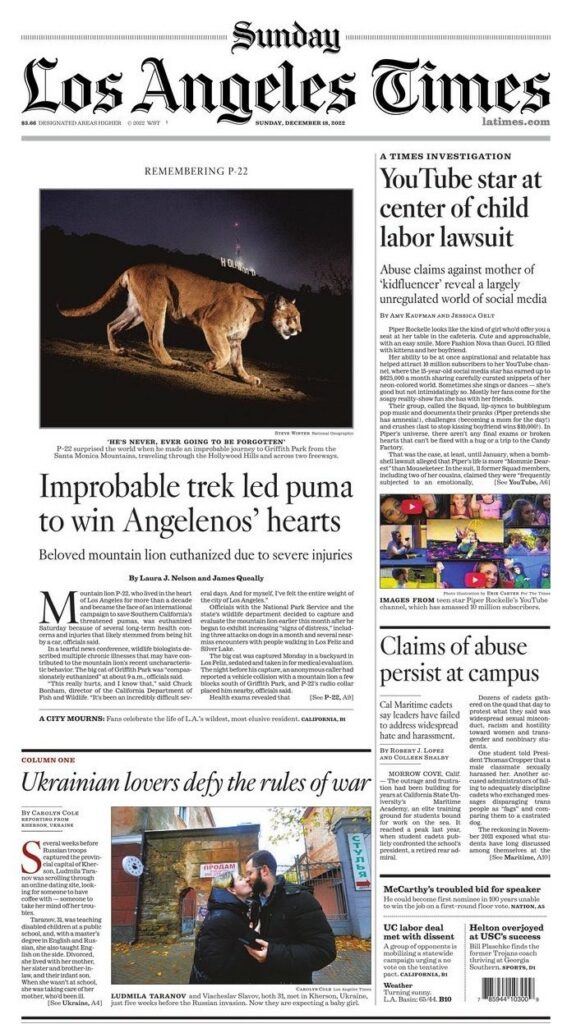P-22, a puma known and beloved to residents of Los Angeles, died last week after a life of adventure. He wore a tracking collar, and his travels and appearances in Griffith Park captivated people in California and beyond. Well, done, feline, well done.
 David Olin writes Elegy for a big, beautiful L.A. cat:
David Olin writes Elegy for a big, beautiful L.A. cat:
On the one hand, there’s the matter of celebrity. Certainly, the 12-year-old cat fit the criteria — sought out by residents eager for a sighting, written up in publications including National Geographic. Just think of the iconic photos: P-22 passing below the Hollywood sign or standing on a crest overlooking the basin, with its sprawling nighttime lights.
Perhaps most telling: This newspaper [Los Angeles Times] prepared a prewritten “obituary.”
And yet, celebrity is fickle and it is fleeting. It’s far too shallow a gloss on P-22. What made this mountain lion essential for us was not that he was famous, but that he persevered.
To get to Griffith Park, P-22 had to migrate from the Santa Monica Mountains and may have crossed both the 405 and the 101 freeways. Once in the park, he beat the odds and stuck around for 10 years, making the “urban wilderness” of Los Angeles his home.
Isn’t that, to some extent, the case for all of us? Whether we arrived from elsewhere or were born here, we have built lives in this city not least by reckoning with its ferocity. Los Angeles is often caricatured as witlessly Edenic, “the City of Dreadful Joy,” in Aldous Huxley’s pointed phrase. But we know that’s just a stereotype, a convenient mythology of the place.
Instead of Huxley’s witless joy, let’s substitute wildness: a city in which nature vividly asserts itself. This begins with the instability of the landscape — the fires, floods, earthquakes and droughts. Among my favorite civic symbols are the La Brea Tar Pits, which sit in the midst of the metropolis like a harbinger of past and future, reminding us of where the city came from, what it will revert to.
.
.
.
.
.
.
.

